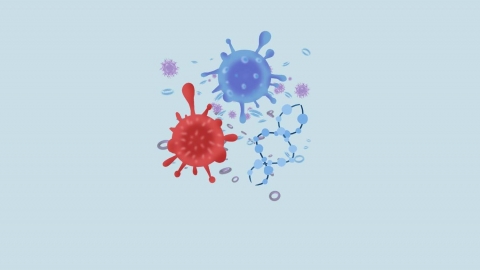How does mycoplasma and chlamydia infection in gynecology occur?
Ureaplasma and Chlamydia refer to Ureaplasma urealyticum and Chlamydia trachomatis, respectively. Under normal circumstances, gynecological infections caused by Ureaplasma and Chlamydia may result from factors such as female anatomical characteristics, poor hygiene conditions, hormonal fluctuations, decreased immunity, or sexual transmission. Depending on individual situations, general treatments and medication therapy can be used to manage or alleviate these infections. It is recommended to seek timely medical consultation, identify the underlying cause, and undergo appropriate treatment under a physician's guidance. A detailed explanation is as follows:

1. Female anatomical characteristics
Women have a naturally short, wide, and straight urethra, with weak urethral sphincter muscles and a large urethral opening. These characteristics make it easier for bacteria to ascend into the bladder and cause infection. Women should maintain good personal hygiene, especially after sexual intercourse and during menstruation, keeping the vulva clean.
2. Poor hygiene conditions
Poor hygiene can easily lead to the proliferation of pathogens, increasing the risk of infection. It may also be accompanied by symptoms such as skin infections or respiratory tract infections. It is recommended to maintain good personal hygiene habits, regularly change underwear, and use mild cleansing products for intimate areas.
3. Hormonal fluctuations
Hormonal changes during a woman's menstrual cycle, such as those occurring during ovulation or menstruation, may disrupt the vaginal microecological balance, increasing the risk of infection. This may be accompanied by emotional fluctuations and breast tenderness. Patients may follow medical advice to use herbal medicines such as Modified Xiaoyao Pills, Seven-processed Cyperus Rhizome Pills, or Wuchewan (Black-boned Silky Chicken Pill) to relieve symptoms.
4. Decreased immunity
When the immune system is compromised, Ureaplasma urealyticum and Chlamydia trachomatis can more easily multiply in the genital tract and cause infection. Symptoms may include fatigue and susceptibility to colds. It is recommended to maintain a healthy lifestyle, including a balanced diet and moderate exercise.
5. Sexual transmission
During sexual activity, Ureaplasma and Chlamydia can enter the body through genital mucous membranes and multiply and spread within the body. Symptoms may include abnormal vaginal discharge, vulvar itching, and a burning sensation. Patients may use medications such as Penicillin V Potassium Tablets, Azithromycin Tablets, or Erythromycin Tablets under a physician's guidance.
Women should enhance their awareness of personal hygiene, avoid unhygienic sexual practices and unsafe indirect contact. In addition, regular gynecological examinations and relevant tests are recommended.










